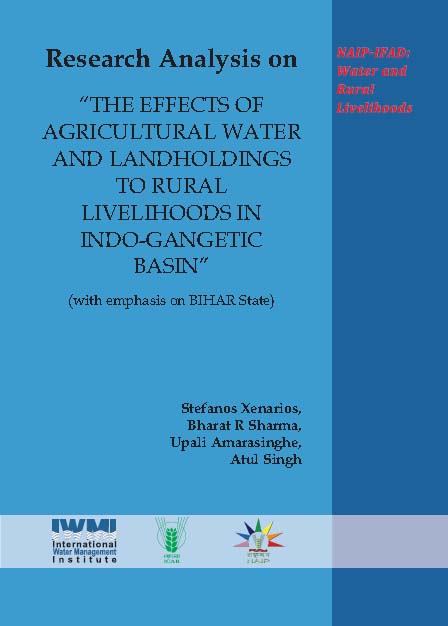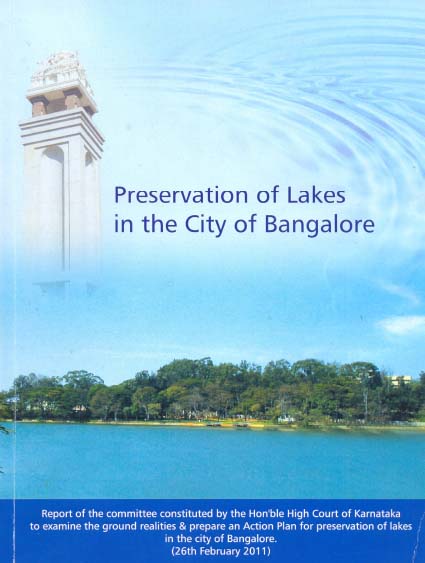/topics/ecology-and-environment
Ecology and Environment
Development of training module for water safety plan in urban areas - A document by ESCI
Posted on 20 Apr, 2011 03:48 AMA Water Safety Plan (WSP) is an improved risk management tool designed to ensure the delivery of safe drinking water. It identifies hazards, means to control them, means and actions to identify loss of control and its restoration. It comprises system assessment and design, operational monitoring and management plans (including documentation and communication). Water quality guidelines have been issued by the WHO.
Drinking water quality monitoring and development of surveillance mechanisms - A pilot study done by NEERI in New Delhi
Posted on 20 Apr, 2011 02:30 AMThe WHO guidelines for drinking water quality aim to protect public health and the key way to ensure this is through the adoption of Water Safety Plans (WSP). WSP includes setting of health targets, risk analysis and its assessment to identify priority hazardous scenarios and management of the risk.
Assessing acute Gastroenteritis risks associated with water quality and sanitation in Hyderabad city - A paper by the Institute of Health Systems (IHS)
Posted on 19 Apr, 2011 11:35 PMThe quality of drinking water is a vital element of public health and well-being. The most effective means of consistently ensuring the safety of a drinking-water supply is through the use of a comprehensive risk assessment and risk management approach that encompasses all steps in water supply from catchment to consumer.
WHO guidelines on water quality term these approaches as water safety plans (WSPs), developed to organize, systematize and apply management practices in drinking-water quality.
The effects of agricultural water and landholdings to rural livelihoods in Indo-Gangetic basin – Research analysis by IWMI and ICAR with an emphasis on Bihar
Posted on 18 Apr, 2011 11:56 PM The current research analysis by International Water Management Institute (IWMI) in cooperation with ICAR Resear
The current research analysis by International Water Management Institute (IWMI) in cooperation with ICAR Resear
TN Khoshoo Ecology and Environment award for schools (2011)
Posted on 18 Apr, 2011 09:00 AMT N Khoshoo Ecology and Environment award for schools has been instituted to recognize schools that enable innovative, creative activity that promotes environmental consciousness and thoughtful action. This award is a joint initiative by The Khoshoo Endowment Fund and ATREE, along with the Teacher Foundation, Wipro, IAIM-FRLHT and Pravah. The award was launched in Bengaluru and Delhi earlier in the year 2010.
National awards for Excellence in Forestry by Indian Council of Forestry Research and Education - Apply by 30th June 2011
Posted on 18 Apr, 2011 08:51 AM Nominations/applications are invited for four “National Awards for Excellence in Forestry by ICFRE“ for the period 2008-2010 on biannual basis. These awards shall be given for original and outstanding notable work/research contribution in the fields of (a) Forest Education (b) Forest Research (c) Forest Extension.
Nominations/applications are invited for four “National Awards for Excellence in Forestry by ICFRE“ for the period 2008-2010 on biannual basis. These awards shall be given for original and outstanding notable work/research contribution in the fields of (a) Forest Education (b) Forest Research (c) Forest Extension.
One of the four awards called “Young Scientists Award in Forestry” shall be given only to the scientist with 40 years or less of age, with work preferably linked to the project(s) of ICFRE.
Indigenous pest management practices prevalent among hill farmers in Uttarakhand – A paper in the Indian Journal of Traditional Knowledge
Posted on 17 Apr, 2011 04:57 PMThis paper in the Indian Journal of Traditional Knowledge aims to describe indigenous pest management (IPM) practices being followed by farmers of Bageshwar district of Uttarakhand and their belief behind following them.With those practices, farmers would manage pests effectively without deteriorating environment. These practices could be very important if incorporated into integrated pest management research to enrich the research process and make it more relevant for the farmers.
"I want my father back" - A 50-min film by Suma Josson on farmers' suicides in Vidarbha
Posted on 15 Apr, 2011 05:23 PM
Let Pinder river flow free - Thousands gather in people's public hearing and vow to oppose the dam
Posted on 15 Apr, 2011 05:16 PMI pray to all my friends, brothers and sisters to not join the company in turning this valley into a monstrosity!” These are the powerful words by Narmada Devi from Village Padmallah that marked the flavor of a peoples' public hearing on the Devsari HEP.
This public hearing on the 3 April 2011 saw strength of 2000 people from all proposed Devsari HEP affected and surrounding villages of the Pinder valley. The hearing was organized by Bhu Swami Sangharsh Samiti and Matu Jan Sangathan and took place at the Sangam Maidan of Block Deval, Tehsil Tharali, District Chomoli, Uttarakhand. Public hearing at Deval was a peoples' response to the project proponent hearing at Chepdu on 20 January 2011.
Landmark initiative of Karnataka High Court stops the destruction and degeneration of lakes of Bangalore – ESG's submission and the report of the Committee constituted by the Court
Posted on 15 Apr, 2011 11:33 AM The Hon'ble High Court of Karnataka in a recent landmark ruling (March 2011) accepted the report of the Karnataka High Court Legal Services Committee, which was constituted by it to examine the ground realities and prepare an action plan for the preservation of lakes in the city of Bangalore.
The Hon'ble High Court of Karnataka in a recent landmark ruling (March 2011) accepted the report of the Karnataka High Court Legal Services Committee, which was constituted by it to examine the ground realities and prepare an action plan for the preservation of lakes in the city of Bangalore.
The issue dates back to 2008 when the Environment Support Group (ESG) filed a Public Interest Litigation challenging the privatisation of lakes in Bangalore by the Lake Development Authority. There were two key prayers in the PIL.
One was seeking "necessary directions directing (the Government) to frame a scheme for the effective administration of lakes and tanks in consonance with the Principle of Intergenerational Equity and Public Trust Doctrine, in line with the recommendations of the Lakshman Rau Committee and also in conformance with principles for wetland conservation and management as laid down by the Union Ministry of Environment and Forests".





